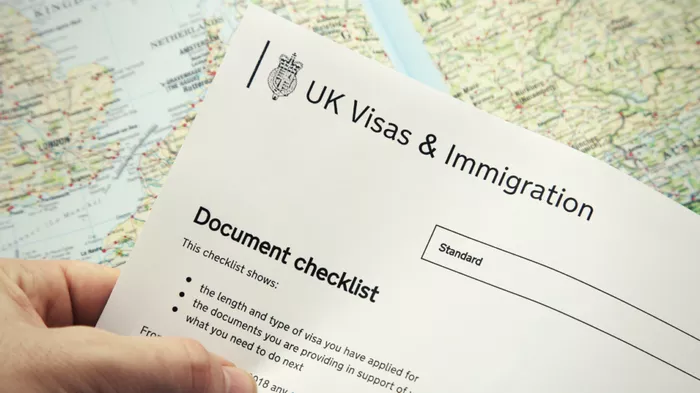In the dynamic landscape of immigration policies, the UK remains a sought-after destination for individuals seeking opportunities for work, study, or residency. Among the various visa categories available, the Further Leave to Remain (FLR) visa holds significant importance for those already residing in the UK who wish to extend their stay. This article provides a detailed examination of the FLR visa, outlining its eligibility criteria, application process, and implications for individuals and families.
Introduction to the FLR Visa
The FLR visa, also known as Further Leave to Remain, is a category of visa that allows individuals already residing in the UK to extend their stay. This visa is pertinent for individuals who have temporary permission to stay in the UK and wish to prolong their residency beyond the validity of their current visa. Whether it be for work, study, family, or other purposes, the FLR visa provides a pathway for individuals to legally remain in the UK.
Eligibility Criteria
To qualify for the FLR visa, applicants must meet certain eligibility criteria established by the UK Home Office. The specific requirements vary depending on the individual’s circumstances, such as their current visa category and the reason for seeking an extension. However, common eligibility criteria for the FLR visa may include:
Valid Immigration Status: Applicants must currently hold a valid visa or leave to remain in the UK.
Financial Requirement: Depending on the visa category, applicants may need to demonstrate sufficient financial means to support themselves and any dependents.
English Language Proficiency: In some cases, applicants may need to prove their proficiency in the English language.
Criminal Record Check: Applicants may be required to provide a clean criminal record certificate from their country of origin or any country where they have resided.
Compliance with Visa Conditions: Applicants must demonstrate compliance with the conditions of their current visa, such as not working illegally or overstaying their permitted duration of stay.
Types of FLR Visas
The FLR visa encompasses various categories tailored to different circumstances and purposes. Some of the common types of FLR visas include:
FLR(M) Visa: This visa is designed for individuals wishing to extend their stay in the UK on the basis of their relationship with a British citizen or settled person, such as a spouse, partner, or family member.
FLR(FP) Visa: The FLR(FP) visa is for individuals who are victims of domestic violence or abuse and need to extend their stay in the UK for protection.
FLR(O) Visa: The FLR(O) visa is for individuals in various categories, such as those with exceptional talent, entrepreneurs, investors, or those seeking to extend their stay for other employment-related reasons.
FLR(P) Visa: This visa category is for parents of children who are British citizens or settled in the UK and wish to extend their stay to continue their relationship with their child.
Application Process
The application process for the FLR visa typically involves several steps, including:
Gathering Required Documents: Applicants must collect and prepare the necessary documents to support their application, including proof of identity, financial documents, and supporting evidence related to their reason for seeking an extension.
Completing the Application Form: Applicants must accurately complete the relevant application form provided by the UK Home Office, ensuring all sections are filled out correctly and truthfully.
Biometric Appointment: In most cases, applicants will need to attend a biometric appointment to provide their fingerprints and photograph as part of the identity verification process.
Submitting the Application: Once all documents and the application form are ready, applicants can submit their application online or by post, along with any required fees.
Awaiting a Decision: After submitting the application, applicants must wait for the UK Home Office to process their application and make a decision. The processing time can vary depending on factors such as the type of visa and the volume of applications being processed.
Receiving the Decision: Once a decision has been made, applicants will receive notification of the outcome, either granting or refusing the FLR visa. In the case of approval, applicants may receive a new biometric residence permit (BRP) with an extended validity period.
Implications of the FLR Visa
Obtaining the FLR visa has several implications for individuals and families residing in the UK, including:
Continued Legal Residence: The FLR visa allows individuals to legally remain in the UK beyond the validity of their current visa, providing stability and security in their residency status.
Access to Services: With a valid FLR visa, individuals may continue to access essential services such as healthcare, education, and employment opportunities in the UK.
Family Reunion: For individuals applying under family-related categories such as FLR(M) or FLR(P), the visa facilitates family reunion by allowing them to extend their stay to be with their British citizen or settled family members.
Pathway to Settlement: In some cases, holding an FLR visa may contribute towards eligibility for settlement (indefinite leave to remain) in the UK, paving the way for long-term residency and potential citizenship.
Responsibilities and Obligations: FLR visa holders must continue to adhere to the conditions of their visa, such as maintaining valid immigration status, complying with any work or study restrictions, and informing the authorities of any changes in circumstances.
Conclusion
The FLR visa plays a crucial role in facilitating the extension of stay for individuals and families already residing in the UK. By understanding the eligibility criteria, application process, and implications of the FLR visa, applicants can navigate the immigration system with greater clarity and confidence. Whether it be for family reunion, work opportunities, or other reasons, the FLR visa provides a pathway for individuals to continue their journey in the UK while complying with immigration regulations and contributing to society.


